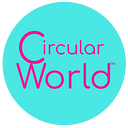The Marketing of Reuse
How many reusable bags do you have at home or at the office? If you are like me, you may have a small mountain of them, most of them acquired for free as part of an event or promotional campaign. Nearly all of my reusable bags are coloured with printing, most likely from less-than-environmentally friendly dyes and inks. They fall apart quickly and cannot be repaired.
The value proposition of reusable bags has been that they are not plastic, which is how they came to be so popular in the first place. This is how ‘reusable’ has grown to become part of the plethora of sustainability marketing, only encouraging more consumerism disguised as an emotional connection to environmental sustainability and the circular economy.
The reusable cup has now evolved into a fully-fledged business opportunity as one market research company estimates the reusable coffee cup market will be worth US$28 billion by 2033.
Reuse is a system, a system based on resource management achieved by reducing packaging waste, supported by a reverse logistic infrastructure so businesses and consumers can contribute to the overall value of a reuse system. Ultimately, reuse promotes a complete transformation in our relationship with consumer goods and services. A US$28 billion market only maintains the current linear economy.
The biggest downside to reuse is that no one company can implement an economically viable service on their own. In 2019, the UK supermarket chain Tesco commenced a 2-year trial for reuse and refill in partnership with Loop, and their 2022 report provides important learnings for all of us. Here is a brief summary:
- Many customers want to shop in reusable packaging — Tesco met their targets for customer participation with thousands of customers having taken part and shown a willingness to shop in reusable packaging. More than 80,000 products were purchased over two years.
- Reuse can work for retailers and suppliers — Shared distribution, cleaning and refilling services for many different supermarkets, food service and catering could help deliver scale and cost-effectiveness more quickly than any single retailer can by going it alone.
- Instore staff acted as ambassadors for reuse — Many customers said they took part following their interaction with a trained staff member who was able to explain the reuse process and why it is better for the planet than recycling.
- A truly scalable proposition — Tesco’s modelling, based on data from their prefill pilots, shows the potential impact on single-use packaging if they can further improve and then scale up a prefill proposition.
- Keep simplifying the customer experience — At present, shopping prefill products is almost as convenient as conventional, but it involves new behaviours of paying a deposit and returning the packaging for cleaning. Simplifying this further would increase customer adoption.
- Competitive price — Economies of scale and improved efficiency will be key to getting to parity between reusable packaging and conventional single-use packaging.
- Cultural shift towards reuse — Increasing public awareness of the positive impact of reuse over recycling is also a role for campaigners, experts, opinion formers and media. For instance, Tesco’s pilots show that customers tend to prefer products in steel tins and sometimes avoid durable, reusable plastic packaging. This could lead to more packaging in energy-intensive and expensive steel tins than is necessary. In scenarios like this, the voice and credibility of opinion formers and NGOs will be needed to build consumer confidence in the fact that durable plastic packaging used as part of a credible reuse scheme will not end up as waste or in the environment.
- Collaborating for success — One company cannot create a successful and scalable reuse proposition in isolation. Between us (Tesco), we need to innovate and ensure we create a system that customers will find easy to use, and offers a range of products at great value with clear benefits for the planet.
**************************
Ms Adrienna Zsakay is the Founder and CEO of Circular Economy Asia Inc, and this article represents her opinions on the circular economy. Circular Economy Pick of the Week is brought to you by Circular World™ Media — a brand owned by Circular Economy Asia Inc.
References
Reusable Coffee Cup Market Growth, Size, Trends, Price, Revenue and Future Competition by 2033
Infrastructure to Scale the New Reuse Economy
‘Use. Reuse, Repeat — Shared Learnings on Reusable Packaging.’ Tesco Reuse Report, 2022.
Originally published at https://www.linkedin.com.
